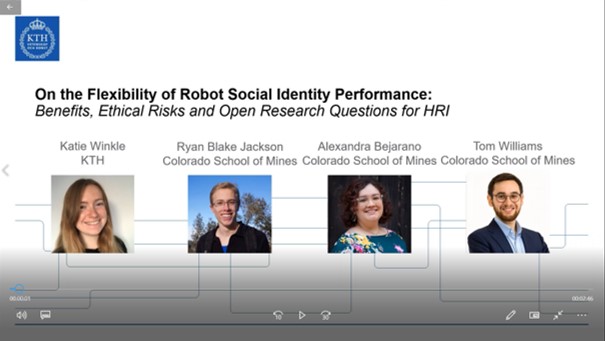Social Influence, Norms and Behaviour
I'm interested in understanding how robots might influence our norms, attitudes and behaviours on the individual interaction level, but also in the ways that robots (and the way we *do* HRI) can reinforce or disrupt existing social relations and inequities.
From an application point of view, this is pertinent to the design of robots designed to elicit or encourage particular user behaviours - think e.g. socially assistive robots. Here, I am interested in interaction design strategies which encourage and support long-term behaviour change whilst also delivering on user autonomy and basic psychological needs fulfilment.
More broadly, there is increasing evidence that HRI has potential to shape our social and moral norms. Most well known here is the work I've done around (gender) "norm-breaking" robot identity performance/behaviour and its potential to reduce social biases/increase inclusion. Understanding (and leveraging) interactions with social robot identity performance is a fascinating design challenge fraught with ethical risk and opportunity as summarised in the brief video below and associated workhop paper presented at the Robo-Identity workshop (HRI 2021).
Selected Publications
Miranda, Lux, et al. "A Case for Diverse Social Robot Identity Performance in Education" Proceedings of the 2024 ACM/IEEE International Conference on Human-Robot Interaction. 2024. Paper.
Winkle, Katie, et al. "Norm-Breaking Responses to Sexist Abuse: A Cross-Cultural Human Robot Interaction Study." Proceedings of the 2022 ACM/IEEE International Conference on Human-Robot Interaction. 2022. Paper; Video Presentation
Winkle, Katie, et al. "Effective persuasion strategies for socially assistive robots" Proceedings of the 2019 ACM/IEEE International Conference on Human-Robot Interaction. 2019. Paper.
